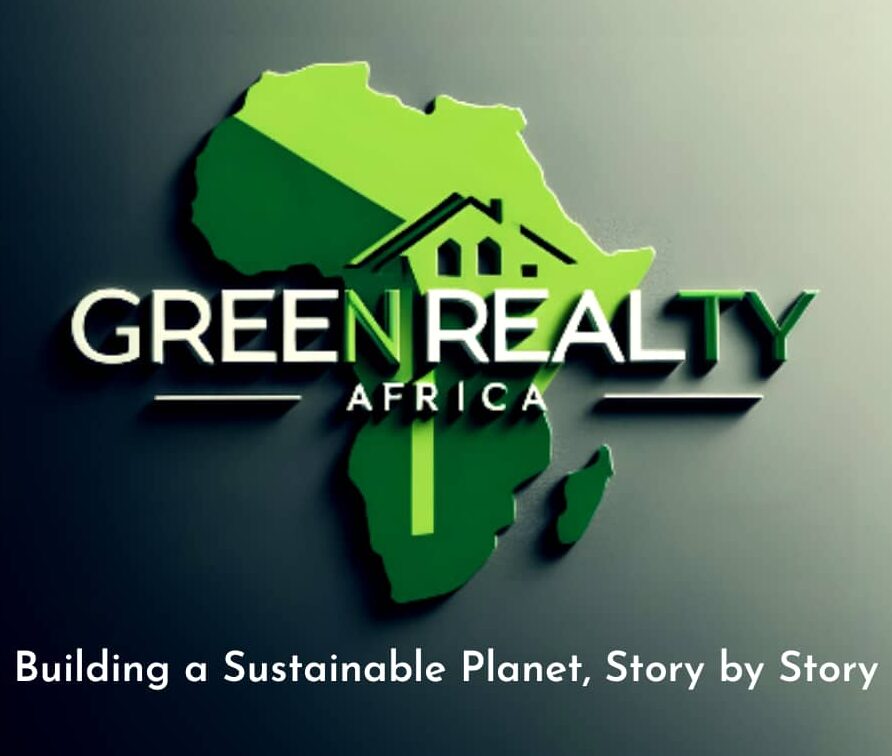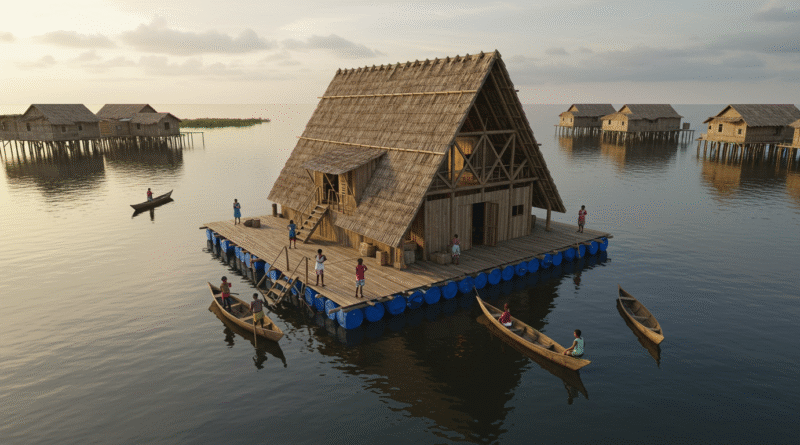Makoko Floating Real Estate Solutions: Climate Adaptation
In the heart of Lagos, where city meets rising tides, Makoko floating real estate solutions are emerging as powerful symbols of resilience and innovation. Long marginalized, the Makoko community now leads in climate-smart urban development with nature-inspired, amphibious architecture—structures that float when waters rise and anchor when dry.
Scaling Makoko Floating Real Estate Solutions Across Lagos
Perched on the waters of Lagos Lagoon, Makoko has endured flooding and poor infrastructure for years. Yet instead of retreating, architects are deploying Makoko floating real estate solutions. From the prototype Makoko Floating School to modular, scalable homes with rainwater harvesting, solar power, and permeable materials—to show how waterfront communities worldwide can thrive even as sea levels climb.
Makoko’s vulnerability to floods is no longer an urban planning footnote—it’s a climate imperative. The floating real estate in Makoko movement gained global recognition with the prototype Makoko Floating School, designed by Nigerian architect Kunlé Adeyemi and his firm NLÉ.
Constructed from locally sourced timber and floating atop 256 plastic barrels, the structure was not just a school. It was a vision of how waterfront communities could live, learn, and thrive even as sea levels rise. Though the original structure was eventually dismantled after storm damage, it inspired new iterations and global conversations on amphibious living.
Sustainable Design Principles Behind Floating Real Estate in Makoko
The designs that fuel floating real estate in Makoko are not just buoyant—they’re smart. Green infrastructure elements such as rainwater harvesting systems, solar energy, and permeable materials help reduce environmental strain and create a livable habitat on water.
Additionally, the use of modular construction allows for scalability and replication in other flood-prone areas. It’s an architecture rooted in place, yet forward-looking. This showcasing how traditional knowledge and modern design can coexist.
What Floating Real Estate Means for Lagos’ Future
However, the evolution of floating real estate in Makoko isn’t just a local phenomenon—it’s a lesson for all of Lagos, and indeed for low-lying cities worldwide. As urbanization accelerates and climate pressures mount, solutions like those being piloted in Makoko are foundational.
Government support, policy reform, and investment in eco-resilient infrastructure can help scale these initiatives across Lagos. With the right backing, floating real estate could redefine how coastal cities build in the age of climate uncertainty.
What began as a community’s adaptation to neglect and rising waters is now influencing global architecture. Makoko’s floating innovation isn’t just about surviving climate change—it’s about shaping the future of green and resilient real estate.

